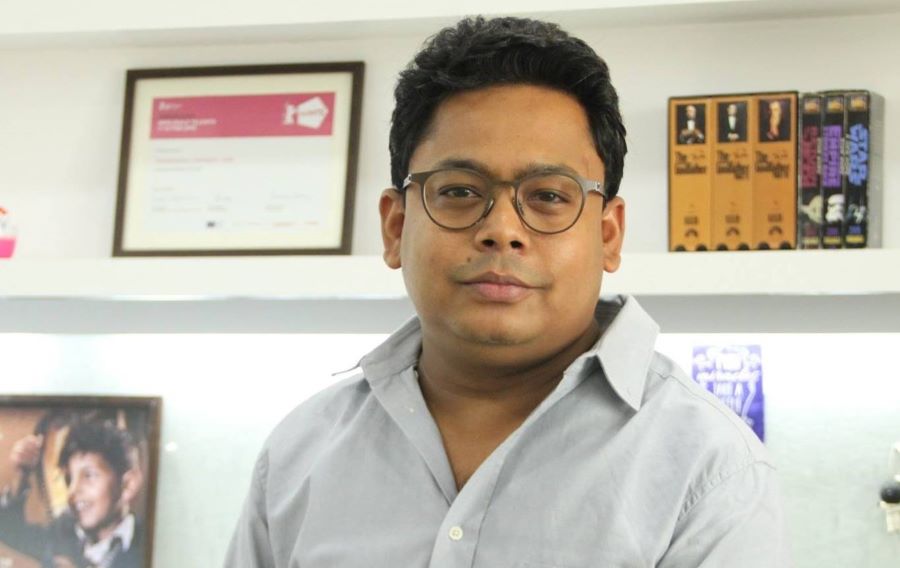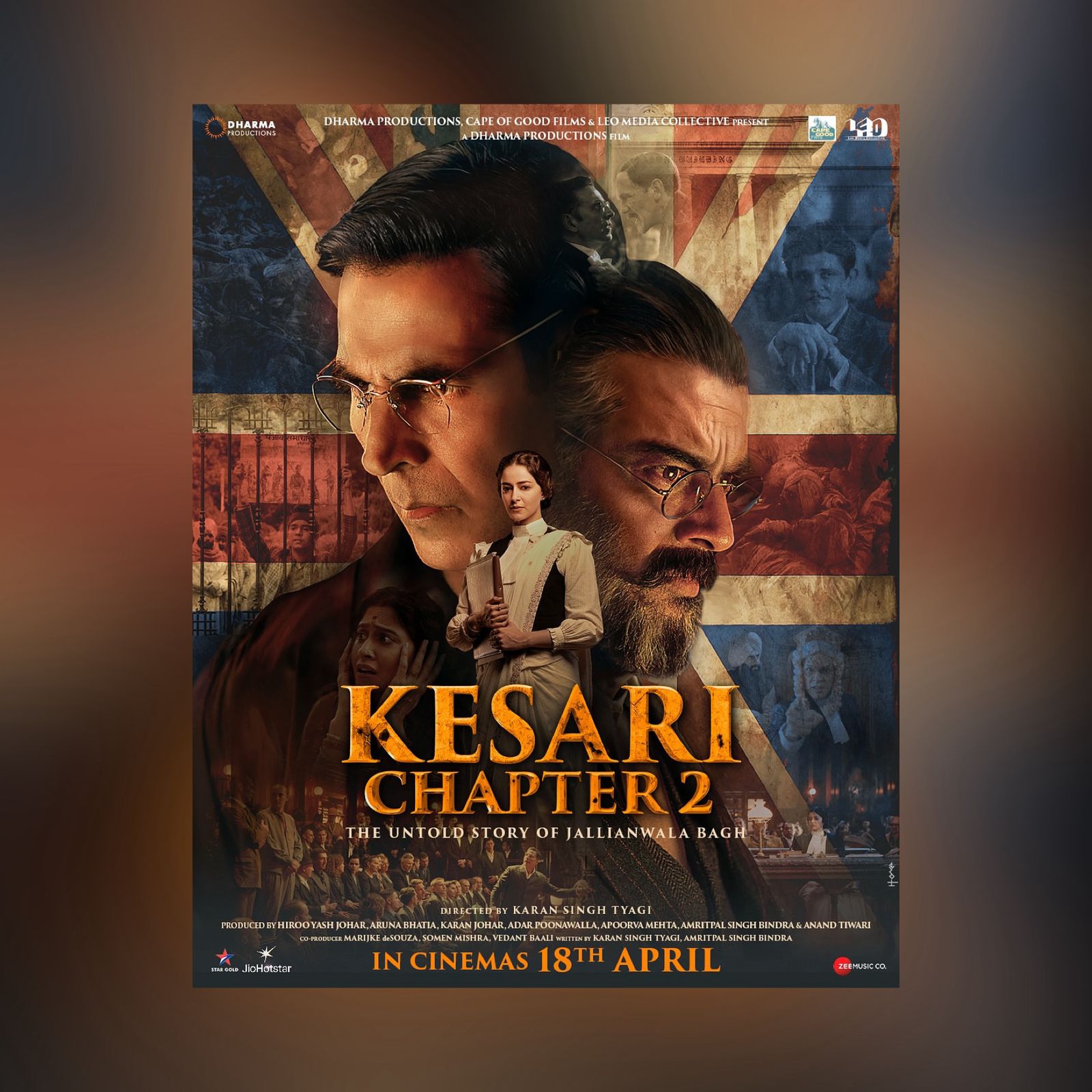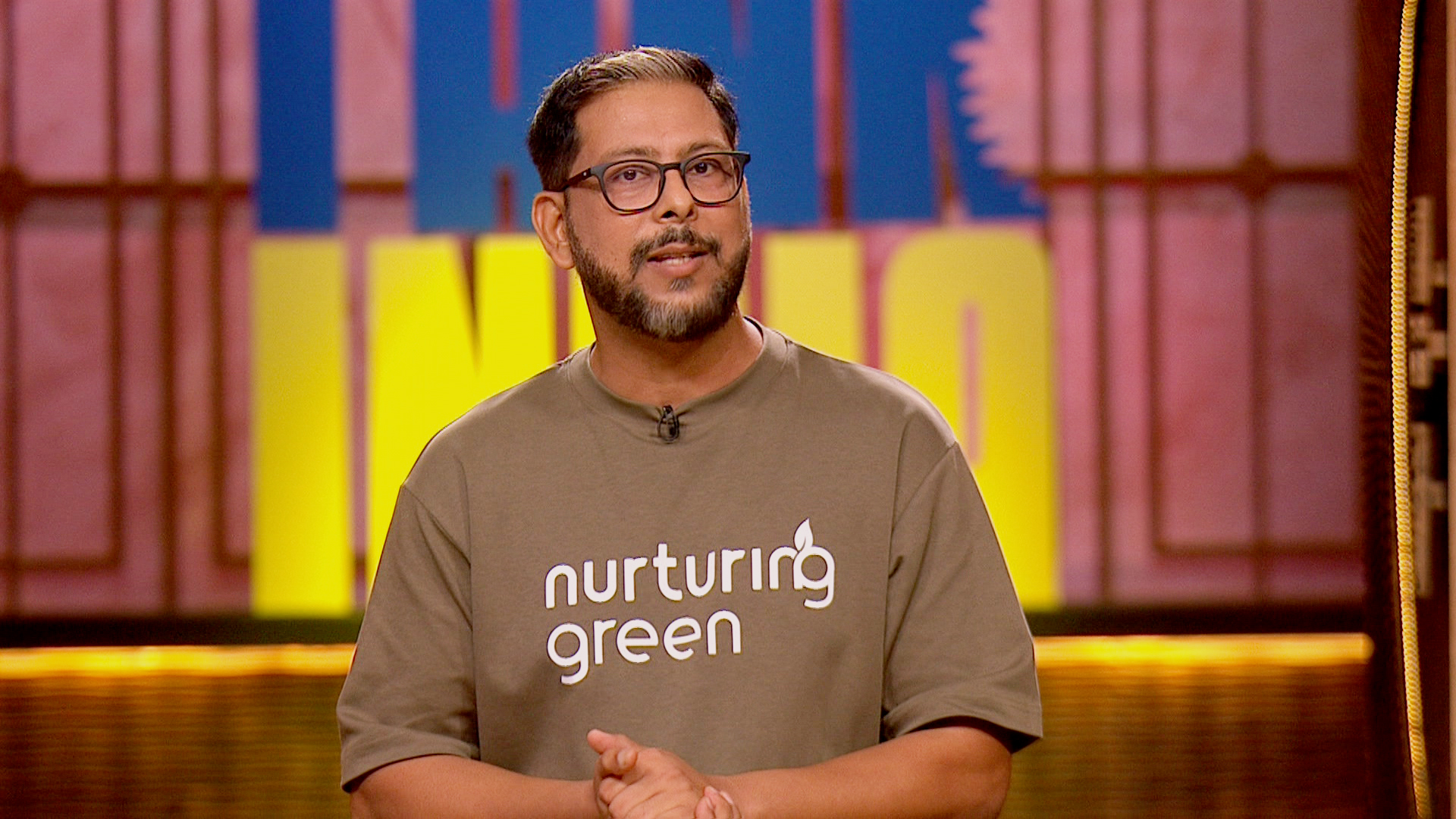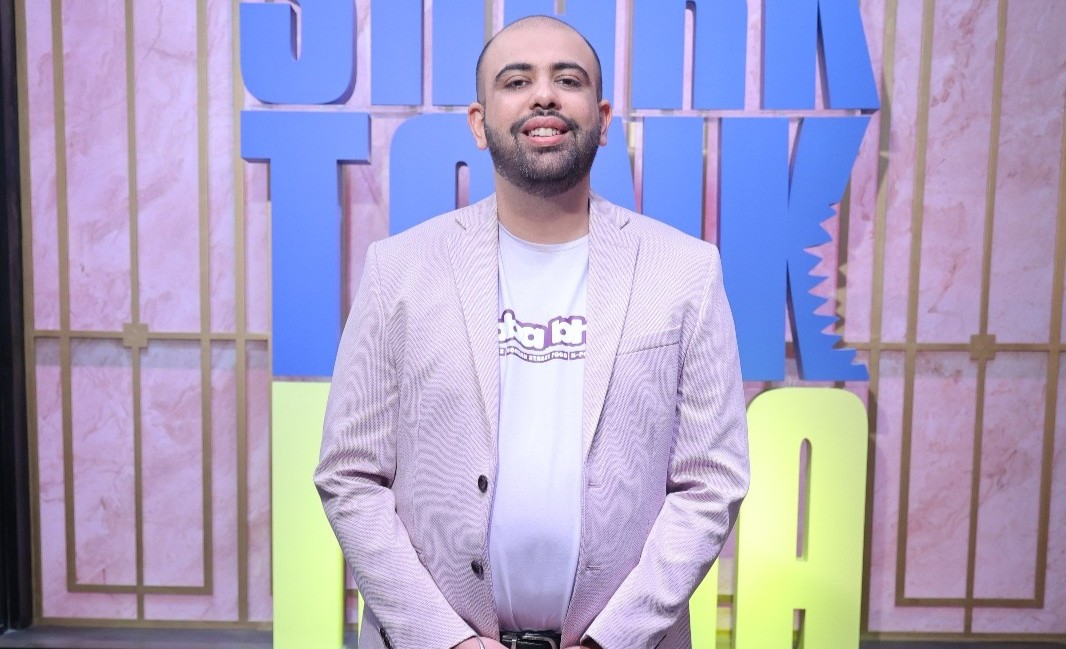
“Aye Zindagi will connect with the audience on a personal level” – Shiladitya Bora – Planet Bollywood
When Shiladitya Bora joined Lalbhai Dalpatbhai College of Engineering in Ahmedabad, he had no idea that one day he would be making films. His love for cinema made him look for opportunities in the production and exhibition sector. After a successful stint in PVR, he went on to become the CEO of Drishyam Films and backed several content-driven films like ‘Masaan’, ‘Waiting’, ‘Newton’ and ‘Rukh’, among others. In the year 2017, the enterprising producer – distributor launched Platoon One Films. In the last five years, the company has produced and distributed many remarkable films including ‘Yours Truly’, ‘Picasso’ and ‘Sir’.
In this interview, Shiladitya talks about his first film as a solo producer ‘Aye Zindagi’, plans for his company Platoon One Films, what drives him to tell unique stories, making his directorial debut next year, upcoming projects and more.
‘Aye Zindagi’ is your first film as a solo producer.
Yes, it has taken me 17-18 years to reach here. It has been a special film for all of us. We launched Platoon One Films in the year 2017. Since then, we have produced and distributed a good number of films. Each of our films paved the way for the next project. We made a film called ‘Yours Truly’ which had a direct-to-digital release. We made some profit from that film and from that money, we produced ‘Picasso’. The successes we had encouraged us to invest in stories that very few had the courage to tell. Our distribution business has also grown with time. We are in a fairly comfortable space now. Now, if we like a particular script, we have the resources to make a film out of it.
There are pros and cons to everything. Producing ‘Aye Zindagi’ on my own was a liberating experience. I could make a lot of important decisions without waiting for somebody’s approval. I am excited but also nervous at the same time as there is a lot at stake. What I feel most happy about is that we have managed to make a good film.
Apart from directing the film, Anirban Bose has also written the script. How did the script come to you?
Several years back, I read this book called ‘Bombay Rains, Bombay Girls’. I was in college then and years away from getting into the film industry. I loved the book so much that I dug out the contact details of the author and wrote to him. The book was written by Anirban Bose. Since then, Anirban and I remained in touch with each other. I remember telling Anirban that an entertaining film can be made out of the book. At that time, I had no idea that one day I would get into films.
Whenever Anirban would come to India, we would meet and discuss several ideas. When I became a producer, I discussed the possibility of making a film on ‘Bombay Rains, Bombay Girls’. We even wrote a script but things didn’t fall into place. A couple of years ago, Anirban was in India and we were having dinner together. It was then that he narrated the script of ‘Aye Zindagi’ to me. By the time his narration got over, I was in tears. I decided to produce the film and started looking for a director who could do justice to the script.
How did Anirban Bose come on board as the director?
Since Anirban was deeply connected with the script, I suggested that he should direct the film. Anirban was apprehensive as he didn’t come from a filmmaking background and had no plans of directing a film. He was based in the United States and teaches at a university. He is a well-known nephrologist there. Despite his profession keeping him busy, he makes time to write plays and create music. I kept persuading him and asked him to give it a thought.
Anirban went back to the US and enrolled himself in a part-time filmmaking course at his local community college. When he came to India, he had the entire storyboard of the film ready. He is one of the most well-prepared directors I have come across. Most of the directors, while making their first film, tend to be confused and rely on crew members and technicians who are more experienced than them. Anirban had complete clarity and directed the film very confidently. We started shooting for the film on 15 October 2021 and it is releasing exactly a year later on 14 October 2022. I am quite confident that ‘Aye Zindagi’ will connect with the audience on a personal level.
You have taken up multiple responsibilities with this film. Apart from producing and distributing the film, you have handled the marketing with Jahan Bakshi. Along with Mayank Bawa, you have been credited for putting the cast together.
I feel I have a talent for casting the right actors. I have done the primary casting of some of our other films as well. We have been doing distribution and marketing for a very long time. I feel very grateful about all the professional experiences I have had. While working with PVR, I developed an understanding of theatrical distribution. At Drishyam Films, I learnt how to make and sell a film. Each film has taught me something or the other. My experiences helped me learn everything from ideation to monetization.
The film boasts of a very interesting cast.
Revathi ma’am is one of the finest actors we have in this country. It was an honour for us to work with her on ‘Aye Zindagi’. Despite being such a celebrated actor, she is extremely humble. She is a wonderful human being and extremely professional. For Satyajeet’s role, we had auditioned a lot of actors. What worked in his favour was his dedication for the role. The kind of transformation he has gone through is similar to the kind Matthew McConaughey underwent for ‘Dallas Buyers Club’. I really hope this film works for him in a big way. I have been a huge fan of Mrinmayee Godbole ever since I saw her in the Marathi film ‘CRD’. She is doing another film with Platoon One Films. Shrikant Verma and I have collaborated on a bunch of projects and he is working in some of our upcoming films as well.
You grew up in Jorhat, a city in Assam, studied engineering and got into films.
When I gave the joint entrance exam in Assam, there were two seats available – one in Jorhat Engineering College and the other in L.D engineering, Ahmedabad. I did not want to study further in Jorhat as I had spent my entire life there. As much as I love the city, I wanted to study elsewhere and explore a new city. After I came to Ahmedabad, I started reading about films on this website called filmmakers.com. I met this gentleman called Mainak Dhar who was an assistant to Prakash Jha on films like ‘Gangaajal’ (2003). When I realized he had studied filmmaking in the United States, I was really fascinated.
Till then, I did not know that one could make a career in filmmaking. By the time my first semester ended, I had decided that I would become a filmmaker. I applied to all the top film schools but did not get selected. Perhaps, that happened because I did not have a portfolio to show. I applied to this community college called Los Angeles City College of Cinema and Television in Los Angeles. I enrolled myself in a two-year-long filmmaking course there but I came back after attending classes for three weeks.
Did the Kodak B-12 camera you owned as a teenager got you interested in images and visuals?
Yes! I used to always click a lot of pictures. I think I was quite a decent photographer. I made a short film called ‘The Journey’ when I was in engineering college. I was involved in a lot of cultural activities during my college days. So, there was always a desire to do something in the creative space.
After finishing your engineering course, you studied at Mudra Institute of Communications (MICA), Ahmedabad. Did it help in re-energizing your creative skills?
At MICA, I was a part of a communication management programme. Other than academics, I did a lot of things in MICA. I started a film festival and film club there.
A meeting with Tina Ambani changed your life. Can you take us through this incredible story?
When you want something badly enough, the whole universe conspires to make things happen for you. We were doing the first edition of FulMarxx Shorts Fest, a film festival. I built a 29-member team for it and it did very well. During the second edition, we ran into a deficit of 13 lakh rupees. Everybody advised me not to go ahead with it. The Ambanis are the trustees of MICA. I somehow got the e-mail address and phone number of Mrs Tina Ambani’s executive associate. She was kind enough to give me a ten-minute slot to meet and speak to her. I shared the idea of this festival to her. She helped us with ten lakh and sixty-five thousand rupees. If that had not happened, I would have gotten into a lot of trouble.
You worked with PVR Pictures for a while. You were instrumental in launching PVR Directors’ Rare, the independent release banner of the company in the year 2010. How was that experience like?
My job with PVR has been one of the biggest breaks of my life. I have always been blessed to have good bosses. Gautam Dutta sir, who is the group CEO at PVR, was my guru and mentor. He gave me the freedom and the independence to experiment with a lot of things. In four years, I got to work in four-five verticals. They have built a very positive ecosystem. I learned about the theatrical business while working at PVR.
Then, you headed Drishyam Films as its CEO.
In the year 2014, I was trying to develop a film on the Sri Lankan civil war. I resigned from PVR and decided to make that film. Around this time, Manish Mundra offered me to work with him. I was not very keen on doing a job at that point as I had decided to become a filmmaker. I was travelling from Colombo to Jaffna to do research on my script. One day, I got a message from Manish stating that he wanted me to become the CEO of his company. I think most of us dream of becoming the CEO of a company someday (laughs). I decided to take up the offer.
What happened to that film?
I tried very hard to make that film happen but things didn’t fall into place. I did a lot of research on the subject. I will make an international film on it at the right time.
When did you decide to branch out as an independent producer and set up your own company?
I had made a name for myself in the distribution circuit. After I resigned from Drishyam Films, I did a couple of projects to secure myself financially. After that, I launched Platoon One Films. 6-7 years back, I was used to working without a safety net. Now, I take risks but keep a safety net ready. There is a famous quote which goes, “you have to find hobbies that pay”. I work seven days a week. Every day, I work for 16-17 hours but do not get bored.
Why did you call your company Platoon One Films?
Platoon refers to a military unit comprising of a group of people with highly specialized skill set. I would define Platoon One Films as a commando unit for motion pictures.
You have largely produced and/or distributed offbeat films. Which is the biggest challenge you face while backing such films?
One of the biggest challenges is that very few people in the industry read scripts. Many a times, their managers read the scripts for them. Such people cannot evaluate whether a script is good or not. Once a ‘Masaan’ or a ‘Newton’ comes, they start believing in you. You will be called an independent filmmaker until you make it. Once you become successful, you wish to make big films. Getting the audience to come to a theatre to watch a film is the biggest challenge.
What makes you put your weight behind a particular film? What gets you excited about a film?
I like watching all kinds of films. I go by my gut feeling. When somebody shares a script or a film with me for the first time, I should get excited by it. When ‘Newton’ came to me, it was a one-line idea. Slowly, the script was developed.
Some of your films have had a theatrical release and there have been a few that released directly on streaming platforms. How do you decide the medium for a film?
Every film has a certain bandwidth. ‘Yours Truly’ was the first film produced by Platoon One Films and we thought it was more suitable for an OTT release. While we were making the film, we did not have any specific release plan or strategy in our mind. It was showcased at several prestigious film festivals. Creatively and financially, it was a very successful film for us.
‘Sir’, which was distributed by us, premiered at the Cannes Film Festival and won the GAN Foundation Award. Before releasing in India, it was released in 30 countries and got an incredible response from the audience. It was a very accessible film and we decided a theatrical release would work best for it. We were very particular about releasing ‘Aye Zindagi’ in theatres as we felt it had the kind of emotions that would resonate with a large audience.
You will be making your directorial debut with ‘Bhagwan Bharose’ which is slated to release next year.
I have been wanting to direct a film for years. Finally, my dream has turned into reality with ‘Bhagwan Bharose’. The film features Vinay Pathak in the lead role along with a stellar cast. Indian Ocean has done the music for the film. We are on the verge of finalizing its release date. I am very excited about our production line-up for next year. ‘Toh Ti Ani Fuji’, a Marathi film produced by Platoon One Films, recently went on the floors. Along with Ellanar Films, we are producing ‘Minimum’, an immigrant drama set in Belgium. We are working with some incredible directors. Next year, we will have multiple releases across different languages.
Publisher: Source link


